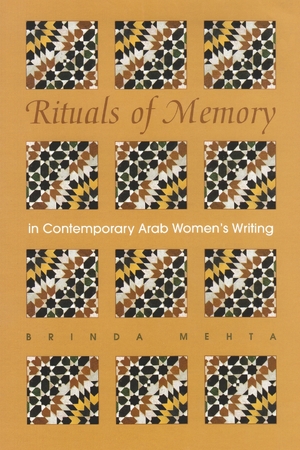"Rituals of Memory is an original project. It is culturally vibrant, theoretically sophisticated, dynamic and truly cross-cultural in its perspective. The inclusion of women writers and critics from Arab, Francophone and Anglophone traditions creates a transnational feminist conscious deeply encoded within specific cultural roots. This book will provide a true understanding of the complexities of Arab women's lives in literature."—Nawal El Saadawi, President, Arab Women's Solidarity Association
"Mehta's sensitive, creative, poetic, brilliant analysis of Arab women's memory writing is a balm on the trauma Arab's face today. It is also a thought-provoking, awareness-raising book that will no doubt have a great impact on the literary criticism of the field."—Evelyne Accad, professor emerita, University of Illinois, Urbana-Champaign
Description
This volume carefully assesses fixed notions of Arab womanhood by exploring the complexities of Arab women’s lives as portrayed in literature. Encompassing women writers and critics from Arab, French, and English traditions, it forges a transnational Arab feminist consciousness.
Brinda Mehta examines the significance of memory rituals in women’s writings, such as the importance of water and purification rites in Islam and how these play out in the women’s space of the hammam (Turkish bath). Mehta shows how sensory experiences connect Arab women to their past. Specific chapters raise awareness of the experiences of Palestinian women in exile and under occupation, Bedouin and desert rituals, and women’s views on conflict in Iraq and Lebanon, and the compatibility between Islam and feminism. At once provocative and enlightening, this work is a groundbreaking addition to the timely field of modern Arab women’s writing and criticism and Arab literary studies.
About the Author
Brinda Mehta is a professor of French and Francophone studies at Mills College, Oakland, California. Her book, Diasporic Dis(locations): Indo-Caribbean Women Writers Negotiate the "Kala Pani," won the Caribbean Philosophical Association's Frantz Fannon award for outstanding work in Indo-Caribbean thought.
April 2007

